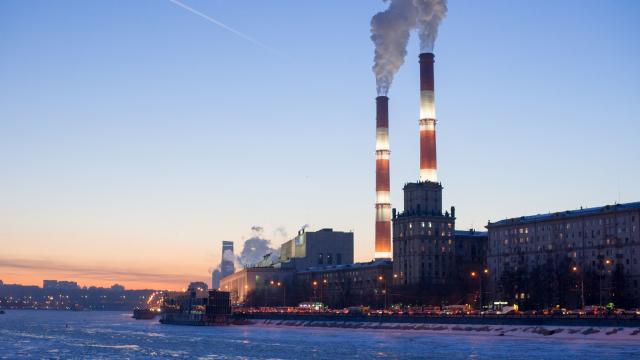In a welcome reminder that not everything is terrible always, global carbon emissions barely grew at all in 2016. It marks the third year in a row that humanity’s carbon footprint has been stable. They’re still much higher than they should be, but at least they are stable.
Image: Kishjar/Flickr CC
The very good news comes from the Global Carbon Project, an international team of Earth system scientists tasked with assessing how much CO2 human activity generates, and where it ends up. According to the group’s latest projections, our collective carbon footprint grew by a mere 0.2 per cent in 2016. Between 2014 and 2015, the same group measured a net emissions growth of zero; a dramatic departure from the prior decade, in which emissions grew by roughly 2.3 per cent per year.
Better still, the global GDP continues to grow at more than three per cent per year. “This third year of almost no growth in emissions is unprecedented at a time of strong economic growth,” lead study author Corinne Le Quéré of the Tyndall Centre for Climate Change Research said in a statement.
The findings, published this week in the open-access journal Earth System Science Data, indicate that the emissions growth pause is driven by a shift away from coal among the world’s two largest carbon emitters, China and the United States.
Emissions in China fell by approximately 0.7 per cent in 2015 and are expected to drop another 0.5 per cent this year, although there is still a great deal of uncertainty in the recent data. In the United States, emissions dropped 2.6 per cent in 2015 and are projected to decline another 1.7 per cent this year. By contrast, in rapidly industrialising nations like India, carbon emissions continue to grow fast.
While there’s reason to be cautiously optimistic about a three-year emissions growth stall, especially since the global economy continued to grow, we have to put these numbers in context. Fossil fuels and industrial activity still contributed about 36 billion tonnes of heat-trapping carbon dioxide to our planet’s atmosphere last year. To halt global warming, we need to bring that number down to zero.
“This is a great help for tackling climate change but it is not enough,” Le Quéré said. “Global emissions now need to decrease rapidly, not just stop growing.”
According to the study’s authors, we now have approximately 800 billion tonnes of carbon “left in the bank” if we want to preserve a two-thirds chance of staying below 2C of warming. If we continue our present course, we’re going to blow through that budget in less than 25 years, at which point we may need to invent carbon capture technology to prevent a dangerous climate change.
And now, we’re faced with an incoming US administration that denies the reality of climate change; that has promised to as quickly as possible; and that will appoint a US Supreme Court justice happy to strike down Obama’s Clean Power Plan. If one thing’s clear, it’s that efforts to curb carbon emissions over the next four years are going to have to move forward in spite of America’s leadership — perhaps, in opposition to it.
